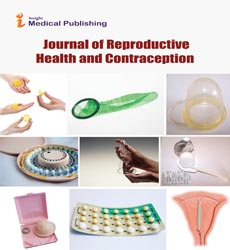Health-Related Quality of Life and Associated Factors among Type 2 Diabetic Adult Patients in Debre Markos Referral Hospital, Northwest Ethiopia
Tewodros Eshete Wonde
Biostatistics, Ethiopia
Received: July 5, 2022; Accepted: July 12, 2022; Published: July 20, 2022
Abstract
Health-related quality of life is a multidimensional construct and largely impacted by Type 2 diabetes mellitus in developing countries. Most studies conducted show a prevalence of diabetes mellitus and do not investigate the quality of life. An Institution-based cross-sectional study was conducted in Debre Markos Referral Hospital from March 03 to March 31st, 2020. The WHO quality of life BREF was used to assess healthrelated quality of life, and data were obtained through face-to-face interviews. To identify study participants, a systematic random sampling technique was used. Data analysis was conducted using STATA version 14.0 and variables with P-value less than 0.05 were considered significantly associated and interpreted using AOR, 95% CI, and P-value. The model was fitted using Hosmer and Lemeshow’s statistics. A total of 368 type 2 diabetic adult patients were included in the analysis and 206(56%) had a good health-related quality of life. Being male (AOR=4.28, 95%CI:2.36, 7.78), duration of disease for more than 59 months (AOR=2.93, 95%CI:1.61, 5.34), doing a physical exercise (AOR=2.33,95%CI:1.34, 4.05) and got counseling (AOR=3.33; 95%CI:1.82, 5.94) were directly associated with good health-related quality of life whereas the presence of diabetic complications (AOR=0.46,
95%CI:0.26, 0.80), comorbidity (AOR=0.45; 95%CI:0.25, 0.84) and drinking alcohol (AOR=0.27, 95%CI:0.16, 0.48) were inversely associated with good health-related quality of life.
Open Access Journals
- Aquaculture & Veterinary Science
- Chemistry & Chemical Sciences
- Clinical Sciences
- Engineering
- General Science
- Genetics & Molecular Biology
- Health Care & Nursing
- Immunology & Microbiology
- Materials Science
- Mathematics & Physics
- Medical Sciences
- Neurology & Psychiatry
- Oncology & Cancer Science
- Pharmaceutical Sciences
